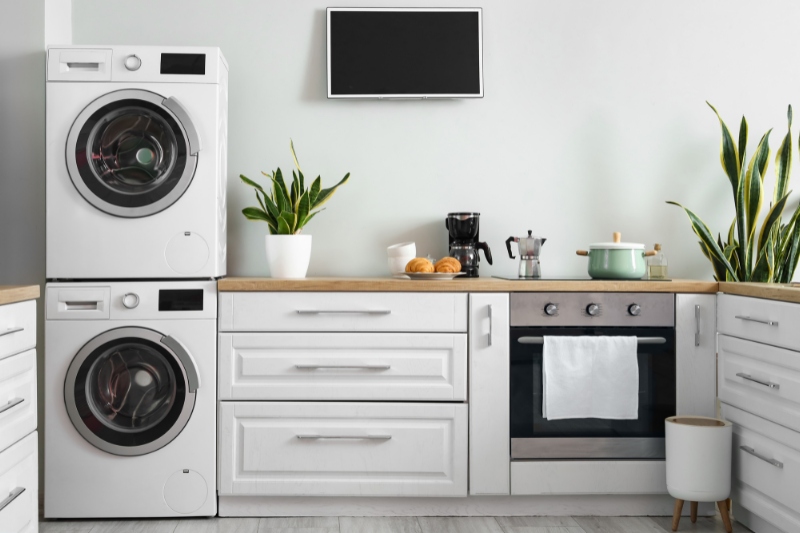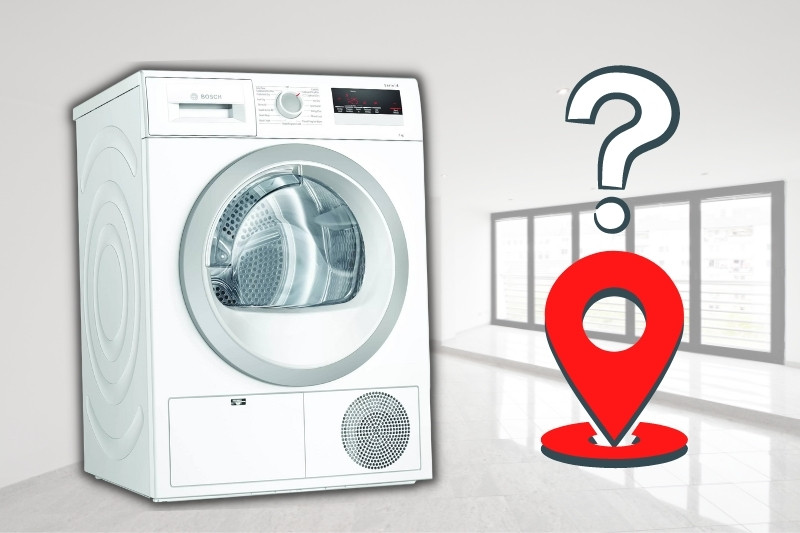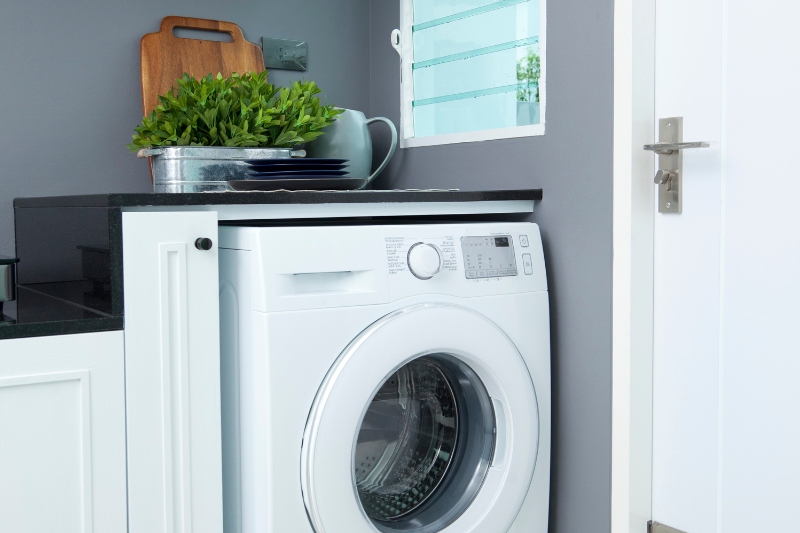When it comes to doing the laundry, having a washing machine in your home is very convenient: It saves you the time and energy you’d otherwise have to spend lugging your washing to the closest launderette and waiting for the wash cycle to finish.
However, there is much debate on where such an appliance should be located.
You are watching: Why Are Washing Machines Usually in the Kitchen in the UK?
If you live in the UK, you’re probably used to the fact that most washing machines are found in the kitchen.
While this may seem normal here, it is often seen as unusual by people in other parts of the world, where washing machines are typically kept in the bathroom or a separate laundry room.
So why are washing machines in the kitchen in the UK? Read on to find out!
Where Do People in the UK Keep Their Washing Machines?

In the UK, the most common place to find a washing machine is in the kitchen. Although this is seen as “normal” in a few other countries (such as China and Malaysia), some people find the idea of doing the cooking and the laundry in the same room ‘disgusting’.
Instead, they often keep their washers in the bathroom or a separate dedicated washing room.
This view often gets much backlash from the British public, who have two very valid reasons for keeping their washing machines in the kitchen: space constraints and a lack of electrical connections. Both of these reasons are explained below in greater detail.
1. Space constraints

Read more : The Absolute Best Knife Sets, Based On Rigorous Testing
In the UK, houses tend to be much smaller than other countries in the developed world.
While the UK’s average house size of 818 square feet is perfectly big enough to live in, people in some other countries have much more space to work with.
For example, the average house in the US is 2,164 square feet, and those in Germany are 1,173 square feet.
With this limited space, it’s not always practical to have a room that is entirely dedicated to doing your laundry.
It also means that bathrooms are typically on the smaller side, so placing the washing machine in the kitchen is the best option to save and maximise space
It is also unusual for older UK homes to have a smaller room built in that could be used as a laundry room.
Some more modern builds do have this feature, but these rooms are often attached to the kitchen and are used as an extension of this room instead. For example, the excess storage could be used as a large pantry.
2. Electrical connections
The other factor that plays a large role in where UK residents place their washing machines is a lack of electrical connections.
In the UK, having an electrical socket in the bathroom is illegal unless it is at least three metres away from the shower and bathtub.
This may sound strange to people from other countries, but this rule has been put in place as a matter of safety; UK sockets use a higher voltage than many other countries (230 volts) and typically don’t have earth pins which are used to control current flow.
This means you would be at a high risk of electric shock or an explosion if the socket was exposed to water.
Read more : How to Get Rid of Flour Mites and Weevils
As we have covered, UK homes are often smaller than those in other countries. This means that the typical bathroom size is 2 x 2 metres.
Unfortunately, this is not big enough to allow a legal electrical connection to be fitted into which a washing machine could be plugged in.
Can You Put a Washing Machine Anywhere?

At the end of the day, you can place your washing machine wherever suits you.
In the UK, it’s more common to store them in the kitchen, but you can just as easily put one in your bathroom, a laundry room, or even your garage if desired.
This being said, you need to ensure you meet the following criteria before relocating your appliance:
- The area has access to plumbing and electrical connections
- There is enough free space to stand the washing machine in
- You have enough money for any necessary home improvements (e.g., to add the required connections)
- You ensure you adhere to any government guidelines in your area
If you don’t want your washing machine to be in view, it is possible to hide it in a cupboard. Those that are specifically designed for this are known as integrated washing machines. They are usually smaller than a typical washer, making them ideal for hiding away.

It is also possible to store a full-sized washing machine in a cupboard, but you will likely need to have the cabinet custom-made to fit the appliance’s dimensions.
This can be costly but is an excellent option if you already own a washing machine and want to hide it from view.
Alternatively, you can also use an integrated washing machine as a freestanding one if needed.
Source: https://gardencourte.com
Categories: Kitchens

